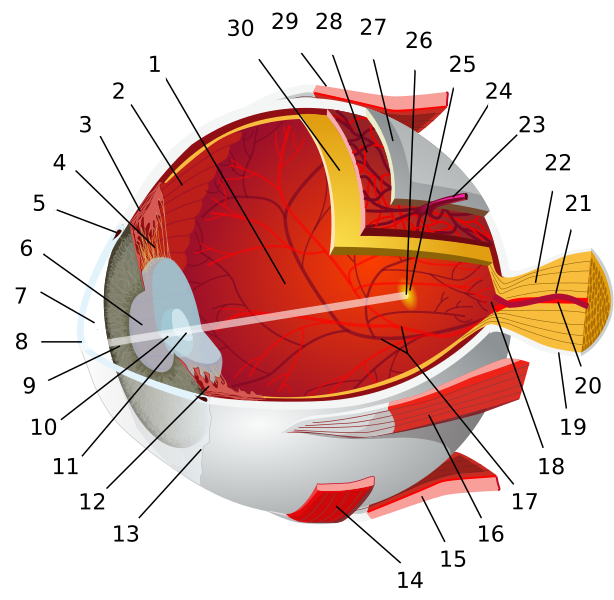
Pediatric ophthalmology addresses the structure, function, diagnosis, and treatment of the eyes and vision system in children.
What is it?
Pediatric ophthalmology addresses diseases of the eye and its smaller components. A pediatric ophthalmologist diagnoses and treats all eye diseases, performs eye surgery and prescribes and fits eyeglasses and contact lenses to correct vision problems in children.
What are the subspecialties?
Pediatric ophthalmologists who specialize in treating specific diseases and conditions of the eyes throughout childhood and adolescence. These issues can be genetic, infectious, traumatic, or as simple as correcting blurry vision with glasses.
What are the commonly associated medical diseases or symptoms?
There are a few diseases that are particularly common in children’s eyes. Some of these conditions are strabismus (misalignment of the eyes), astigmatism (uneven curvature of the cornea and/or lens), hyperopia (farsightedness), myopia (nearsightedness), and amblyopia. You may have heard of Amblyopia, or “lazy eye”, which appears when visual activity is considerably better in one eye than the other.
What are the commonly associated medical procedures?
Varying procedures are performed to correct problems involving the eye. In children, it is especially important to correct vision problems early to prevent any further damage. Some of the most common procedures in pediatric ophthalmology include strabismus surgery, BOTOX injections, laser surgery for retinopathy of prematurity, frontalis sling surgery, and pediatric cataract surgery. A cataract is clouding of the lens of the eye that causes blurred vision. Unfortunately, this form of cloudy vision cannot be corrected via glasses or contact lenses. Cataract surgery replaces the blurry lens with an artificial lens to improve vision.
Are there any preventative measures I can take?
Vision problems in children are often genetic, and therefore it is difficult to prevent the onset of these conditions. However, beginning treatment and vision therapy at an early stage can help prevent worsening of vision impairments. Eye injuries can be prevented by encouraging a child to wear sports goggles when playing high intensity sports and protective eye wear around machinery. Keeping toxic chemicals and sprays out of reach of small children is another method to avoid eye damage among children. Children who play with pellet and BB guns are at a higher likelihood of experiencing injury to the eyes and because of this, these children should be closely monitored.
What are the common misconceptions about this specialty?
One misconception is that wearing glasses too often leads a child to an increased dependency on glasses. The truth is that glasses do not affect the health of the eyes, but rather just improve what is seen. They do, however, take the strain off our eyes when trying to read or see things far away.
Another misconception is that children will outgrow conditions such as “cross eyes”. This is untrue and can lead to permanent and serious vision complications later in life. The earlier this issue is treated, the higher the chance the child has of regaining normal vision. Treatments can range from prescription glasses to reconstructive surgery.
Disclaimer:
All GlobeHealer Site content, including graphics, images, logos, and text, among other materials on the site are for educational purposes only. This content is not intended to be a substitute for professional medical advice, and you should always contact your physician or qualified health provider for information regarding your health. Information on this site regarding the overview, diagnosis, and treatment of any kind should be looked at, in addition to the advice and information of your health care professional. Do not disregard medical advice or delay seeking treatment or medical advice due to information found on the GlobeHealer site.
If there is even the possibility that you may have a medical emergency, seek treatment, call your doctor, or call your local emergency telephone number immediately. GlobeHealer does not endorse being the first line of communication in case of emergency and does not endorse any specific test, physician, facility, product, procedure, opinion, or other information that is or may be mentioned on this site or affiliated entities. Reliance of any and all information provided by GlobeHealer, its employees, affiliations, others appearing on the Site under the invitation of GlobeHealer, or visitors of the site is solely at your own risk and is not the responsibility of GlobeHealer.
Image Source: https://commons.wikimedia.org/wiki/File:Eye-diagram_no_circles_border.svg
